Analysis + Opinion | Older
 |
Analysis + OpinionApril 24, 2008The divestment trapJohn TirmanBoston GlobeThe bill on Beacon Hill would remove all state pension funds from investments in Iran's energy industry as a means of punishing Iran for bad behavior. |
 |
Analysis + OpinionApril 3, 2008Don't 'pull an Iraq' in AfghanistanBenjamin H. FriedmanChristian Science MonitorMassive state-building efforts are not a good use of tax dollars. |
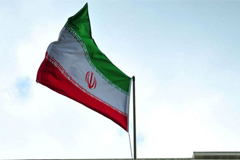 |
Analysis + OpinionMarch 3, 2008How to end the US-Iran standoffWilliam Luers, Thomas Pickering and James WalshInternational Herald TribuneContinuing to try to sanction Iran has made life difficult for some Iranians but will not coerce Iran to change its commitment to a nuclear program. |
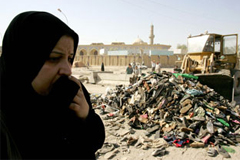 |
Analysis + OpinionJanuary 19, 2008The murky toll of the Iraq warJohn TirmanBoston GlobeAdd to that other numbers that fill in our understanding even more - such as the scale of the flow of refugees or the women widowed by the war - and we have useful information. |
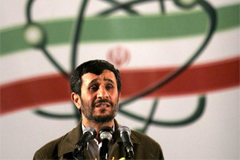 |
Analysis + OpinionDecember 7, 2007Why believe it this time?Jim WalshBoston GlobeThis week's release of the new National Intelligence Estimate on Iran has renewed debate about American policy toward the Islamic Republic, but it also raises important questions about the state of US intelligence. Having been so wrong about weapons of mass destruction in the past, is it credible now? |
 |
Analysis + OpinionDecember 5, 2007The politics of chicken littleismBenjamin FriedmanWashingtonPost.comIt is prudent to prepare for dangers. But it is also prudent to consider the costs of excessive prudence. This holds true for both the environment and national security. |
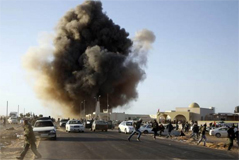 |
Analysis + OpinionNovember 23, 2007Violence in IraqBarry PosenNew York Times“U.S. Says Attacks in Iraq Fell to the Level of Early Last Year” (front page, Nov. 19) reports that according to the United States military, violence is down significantly in Iraq and lists some reasons. Two reasons are conspicuous by their absence. |
 |
Analysis + OpinionOctober 30, 2007An inspiration against nuclear armsJohn TirmanBoston GlobeIn 1980, she invented the call to freeze the nuclear arms race, and this simple but compelling idea - essentially, a moratorium on new nuclear weapons as a prelude to gradual disarmament - became the rallying cry for millions of people sickened by the rush to develop and deploy new nuclear weapons and missiles, space weapons, stealth bombers, and all the other expensive, provocative gadgets of the arms industry. |
 |
Analysis + OpinionSeptember 2, 2007The rogue that plays by the rulesEdward S. SteinfeldWashington PostAs many Americans understand the country, China is trouble for its own people and all the rest of us. Its government is hell-bent on development but provides none of the checks expected of a healthy market system: a free press, an independent judiciary, meaningful property rights and a real legislature. Institutionally deficient and stuck in the past, China is unprepared to deal with the future and to work within the rules of fair play that bind the world's most advanced economies -- or so the conventional wisdom suggests. |
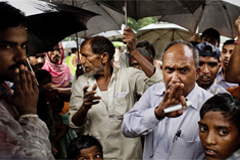 |
Analysis + OpinionAugust 18, 2007The caste system- India's apartheid?Balakrishnan RajagopalThe HinduHaving taken a principled stand in foreign policy against racial discrimination and apartheid, India should not hide behind a false sense of Third World sovereignty in discussing the real problems of how to effectively end caste discrimination in a complex society. |
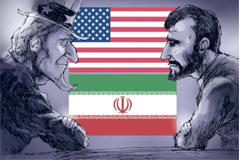 |
Analysis + OpinionAugust 14, 2007A new Cold War with Iran?John TirmanBoston GlobeThe "war of ideas" is different as well. Soviet communism was a highly imperfect version of what Karl Marx intended, but Marxism generally appealed to hundreds of millions of the downtrodden worldwide, regardless of culture. Shia Islam, the ideology of Iran, appeals only to a small segment of the Muslim world, and not beyond; even in Iran, its militancy is not obviously popular. |
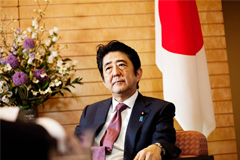 |
Analysis + OpinionAugust 7, 2007The more muscular JapanRichard J. SamuelsBoston GlobeWhile many nations are breathing a collective sigh of relief after North Korea's official commitment to move forward on disabling its nuclear facilities, one country is still holding its breath: Japan. |
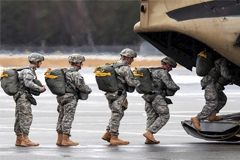 |
Analysis + OpinionJuly 18, 2007More troops for what?Benjamin FriedmanForeign PolicyHoping to sound tough on terror, U.S politicians and pundits of all political stripes are calling for a massive expansion of the U.S. military. But adding more troops has nothing to do with fighting terrorism, and would merely serve the same failed strategy that gave us Iraq. |
 |
Analysis + OpinionMay 28, 2007'24' on the brainKelly M. GreenhillLos Angeles TimesTorture is a staple on the popular show. Are Americans able to separate fact from fiction? |
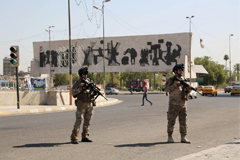 |
Analysis + OpinionApril 19, 2007The risks of staying vs. leaving IraqBarry PosenBoston GlobeSupporters of the war in Iraq, including most recently Senator John McCain, tell us that a series of awful consequences will certainly result if US forces disengage. This argument is offered with great confidence. Yet the costs of disengagement are less certain than is often argued, and the United States can reduce the risks that these costs will arise - and limit their consequences if they do. |
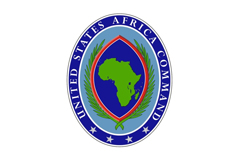 |
Analysis + OpinionApril 2, 2007No to Africa commandHarvey Sapolsky and Benjamin Friedman Defense NewsThe Pentagon's proposal to establish a U.S. Africa Command as part of the U.S. command structure is a mistake. Creating an organization with the express mission of bringing stability to that sadly unstable continent flies in the face of the limits of state-building lessons that the occupations of Afghanistan and Iraq teach. |
 |
Analysis + OpinionFebruary 21, 2007Many hidden costs line national security pathCindy WilliamsKansas City StarThe $625 billion Defense Department budget President Bush sent Congress this month for fiscal year 2008 (which begins this October) is significantly larger after adjusting for inflation than any U.S. military budget since World War II. Even more staggering is the Pentagon’s plan to spend $2.8 trillion during the five years from 2008 to 2012. Unfortunately, the most striking thing about this enormous budget is that it falls far short of the true costs of the current national security path. |
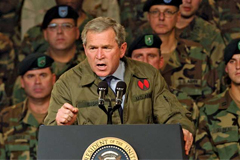 |
Analysis + OpinionJanuary 10, 2007Surge could push troops to breaking pointCindy WilliamsBoston GlobeThe Bush administration's proposal to send an additional 20,000 troops to join the 152,000 already in Iraq is unlikely to bring significant improvement to the situation in Iraq, but it is certain to further damage the already beleaguered US ground forces. |
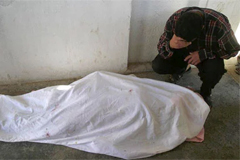 |
Analysis + OpinionDecember 31, 2006In Iraq, the losses Americans don't seeJohn TirmanNewsdayWe focus so much on the deaths of our troops that we don't understand the suffering of Iraqis. |
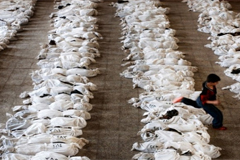 |
Analysis + OpinionOctober 15, 2006Generations have been decimated; who will be left to rebuild the nation?Barbara BodinePittsburgh Post-GazetteWe will never know the full civilian toll of the Iraq War. Two years ago a Johns Hopkins University public health study concluded that something like 100,000 civilians had been killed in the first 18 months of the Iraq War, more than half of them women and children and most as a result of coalition action. |


